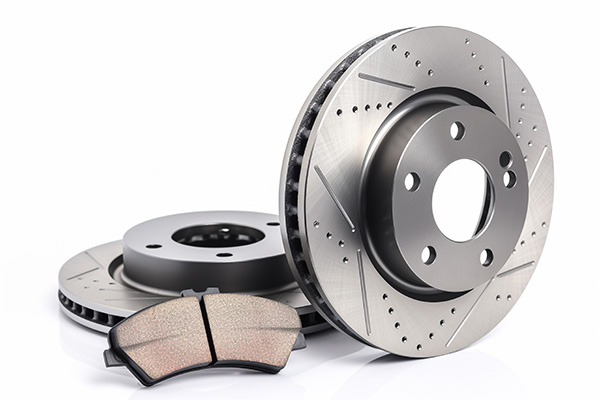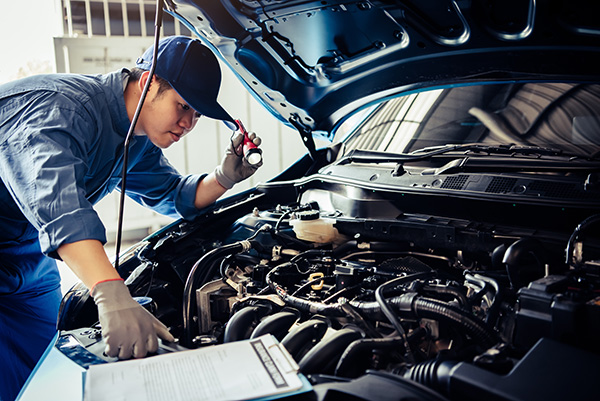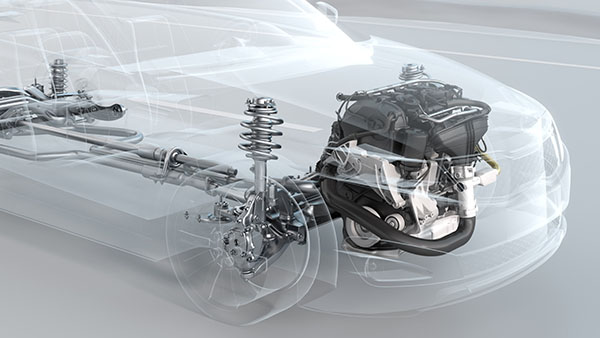Posted on 4/28/2024

There are five telltale signs that your brakes may need some attention. Knowing what to look for can avoid potential brake issues and ensure a safe journey every time you hit the road. 1. Squealing or Grinding Noises One of the most common signs that your brakes need attention is the presence of unusual noises. If you hear a high-pitched squeal or grinding sound when you apply the brakes, the brake pads are likely worn down and in need of replacement. Ignoring these sounds can further damage your brake system and compromise your safety on the road. 2. Vibrations or Pulsations Have you ever felt your steering wheel or brake pedal vibrating when you apply the brakes? This sensation, known as brake pulsation, is often a sign of warped brake rotors. Warped rotors can result from excessive heat buildup during braking or prolonged use without proper mainten ... read more
Posted on 3/28/2024

Are you tired of unexpected breakdowns and costly repairs? Imagine cruising down the road, knowing that your car is reliable and dependable. While cars may seem like complex machines, there are simple steps you can take to improve their reliability and extend their lifespan. 1. Regular Maintenance Just like your body needs regular check-ups to stay healthy, your car requires routine maintenance to perform at its best. From oil changes to tire rotations, staying on top of scheduled maintenance tasks can prevent small issues from turning into major headaches down the road. Maintenance visits include checking the: Brakes Transmission Engine Tires Cooling system A/C system Suspension Undercarriage 2. Keep It Clean Beyond ae ... read more
Posted on 2/27/2024

When talking about car maintenance, fuel additives often play second fiddle to more prominent components like oil and filters. However, they are crucial for optimizing engine performance, improving fuel efficiency, and prolonging the lifespan of your vehicle. What Are Fuel Additives? Fuel additives are chemical substances that are blended into gasoline or diesel fuel to enhance certain properties or address specific issues related to combustion and engine performance. While modern fuels are formulated to meet certain standards, fuel additives offer additional benefits that can help maintain and improve your vehicle's performance over time. Common Types of Fuel Additives Fuel System Cleaners Fuel system cleaners are among the most widely used fuel additives ... read more
Posted on 1/31/2024
.jpeg)
The alternator plays a crucial role in keeping your vehicle going. When your alternator falters, it sends signals that, if detected early, can save you from being stranded on the roadside. Here are several signs that your car might be sending when its alternator is struggling: 1. Dimming Lights One of the first signs of an ailing alternator is dimming headlights. If you notice your lights flickering or becoming noticeably dimmer, it could indicate a drop in electrical power, often traced back to the alternator. 2. Warning Light on the Dashboard Modern vehicles are equipped with warning lights for various systems, including the charging system. If the battery or alternator light on your dashboard illuminates, it's a clear indication that your alternator might be underperforming. 3. Strange Noises A healthy alternator operates silently, but a failing one may produce grinding or whining noises. These sounds can result from worn ... read more
Posted on 12/5/2023

When it comes to your car's ignition system, spark plugs take center stage as the unsung heroes that ignite the fuel-air mixture, propelling your engine into action. However, not all spark plugs are created equal, and understanding the differences can impact your vehicle's performance. There’s copper, platinum, and iridium spark plugs. Copper Spark Plugs The humble copper spark plug has been a longstanding favorite among automotive enthusiasts. Known for their excellent conductivity, copper spark plugs efficiently transfer heat away from the combustion chamber. While they tend to have a shorter lifespan compared to other types, their affordability and reliable performance make them a popular choice for budget-conscious drivers. Platinum Spark Plugs Stepping up the durability game, platinum spark plugs feature a central electrode made of, y ... read more